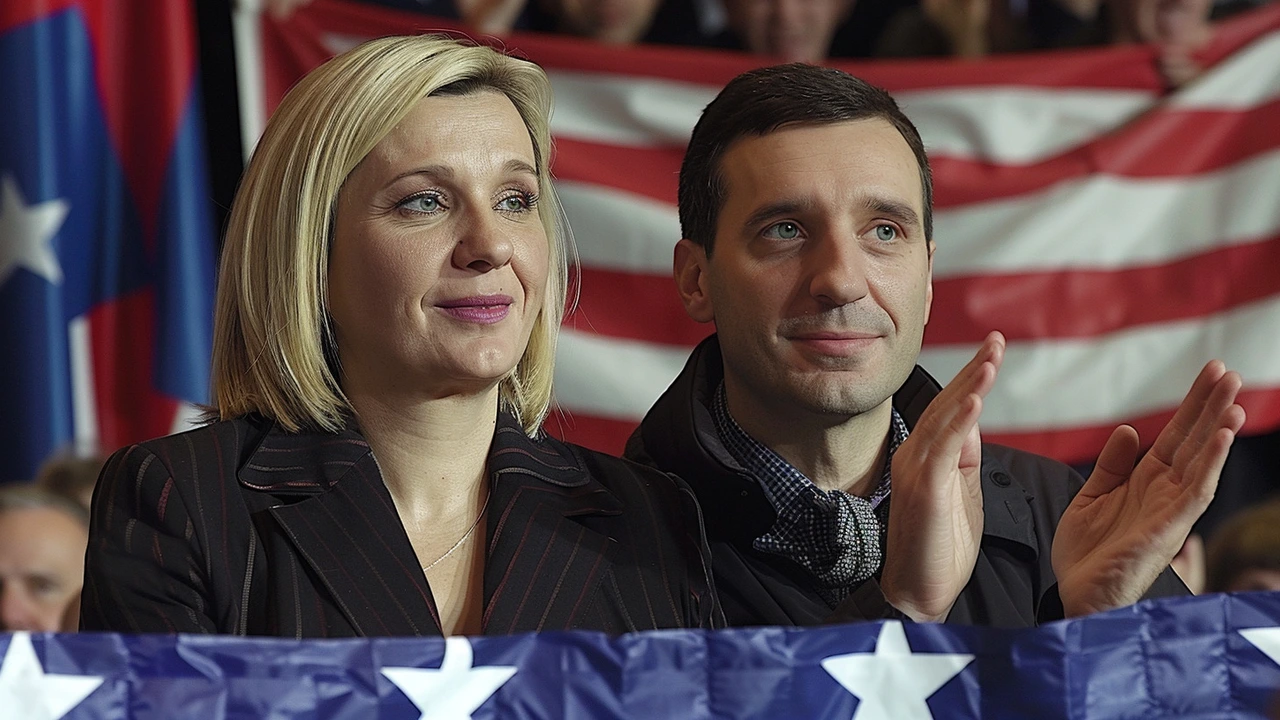France's Political Landscape Shifts as Far Right Nears Power
 Jun, 26 2024
Jun, 26 2024
France's Political Landscape Shifts as Far Right Nears Power
In a political climate already characterized by deep divisions and growing discontent, President Emmanuel Macron of France has proposed new elections. This significant move comes in response to the rising influence of far-right factions during the European Parliament elections. With the far right gaining ground, many are left to wonder if this electoral outcome is a transient protest or a deeper shift in the political landscape of France.
The rise of far-right ideologies in Europe is not new, but the momentum they are gaining in France is particularly noteworthy. The recent European Parliament elections served as a stark indication of the electorate’s growing frustration with the status quo. President Macron's centrist policies, aimed at unifying a fractious nation, have seemingly not resonated enough with a substantial segment of the population.
The Challenge of the Far Right
The National Rally, once a fringe party, has increasingly found its voice and voter base. Led by Marine Le Pen, the National Rally has capitalized on the fears and anxieties of a populace grappling with economic uncertainty and social tensions. Many voters are disillusioned with traditional political parties, which they feel have failed to address pressing issues such as immigration, national security, and economic inequality.
A notable possibility arising from this shift is the potential rise of Jordan Bardella as the head of the National Rally. Bardella, a young and charismatic politician, stands ready to succeed Marine Le Pen. His leadership could herald a new era for the party, potentially steering it towards even more stringent immigration policies and a more inward-looking national agenda.
Implications of Bardella's Leadership
Bardella's potential ascendancy brings with it the possibility of significant policy shifts for the National Rally. Under his leadership, we might see an intensification of the party's stance on immigration. Tighter controls, more restrictive policies, and a robust pushback against the European Union's immigration mandates could come to define the party's platform. Additionally, Bardella has hinted at reduced support for Ukraine in its ongoing conflict with Russia, a move that would mark a significant departure from current French foreign policy.
Such a shift would not only affect France domestically but also have broader implications for the European Union. A more nationalist and isolationist France could find itself at odds with its EU partners, leading to potential conflicts and a reevaluation of France’s role within the union.
Understanding the Voter Sentiment
One of the key questions arising from these developments is whether the recent electoral outcomes are merely a manifestation of voter frustration or indicative of a genuine ideological shift towards far-right beliefs. The recent surge in far-right support can partly be interpreted as a referendum on Macron’s leadership. His progressive policies, while lauded internationally, have faced significant resistance at home. The Yellow Vest protests, which saw prolonged and sometimes violent demonstrations against economic inequality and rising fuel taxes, are a testament to the growing unrest.
However, attributing the electoral shift solely to frustration with the current administration might be overly simplistic. There is a growing segment of the French electorate that genuinely aligns with the far-right's ideologies. Issues such as national identity, cultural preservation, and skepticism towards globalization resonate deeply with these voters. The far right's narrative of reclaiming national sovereignty and prioritizing French citizens' interests over external commitments finds a willing audience.
The Role of 'The Daily' Podcast
The podcast 'The Daily' has taken a comprehensive look at this phenomenon, providing diverse perspectives on France's shifting political landscape. Featuring a large team of contributors, including Rachel Quester and Lynsea Garrison, the podcast offers a multifaceted exploration of the factors driving the far-right's rise in France. Through interviews, expert analysis, and on-the-ground reporting, 'The Daily' delves into the complexities of French politics in an accessible and engaging manner.
With the production efforts of a dedicated team of hosts, producers, and editors, the podcast breaks down the intricacies of current events and offers listeners a deeper understanding of the forces shaping contemporary France. The theme music, created by Jim Brunberg and Ben Landsver of Wonderly, adds a distinctive auditory backdrop, enhancing the overall experience for the audience.
Looking Ahead
As France prepares for the proposed new elections, the political landscape remains uncertain. The potential reshaping of the National Rally under Bardella’s leadership could significantly alter the nation’s trajectory. Whether this marks a temporary backlash against the current administration or a more enduring shift towards far-right ideologies, the outcome will undoubtedly have far-reaching consequences for France and its role within the European Union.
One thing is clear: the upcoming elections will be a crucial test for France. They will not only determine the immediate political direction of the country but also signal broader trends within European politics. The world will be watching closely as France navigates this pivotal moment in its history.